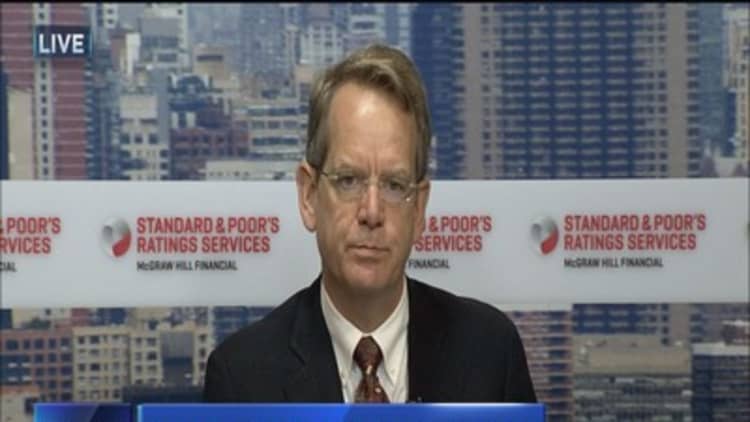
While Greece scrambles to pass legislation due Wednesday for the right to a third bailout, the euro zone is searching for ways to help the country avoid defaulting on more debt repayments.
But counting on the Greek parliament to pass measures many consider to be harsher than those rejected in an earlier referendum might be a dangerous assumption, according to Standard & Poor's head of sovereign ratings, John Chambers.
"It was a proposal that went beyond what was rejected in the referendum last week by 61 percent of the Greek population," he said. "There is very little popular backing for this.... I don't think there's any good solution at this point."
It's precisely that reasoning behind the agency's "CCC-" rating on Greek bonds, indicating a risk to commercial creditors that remains quite high, he said.
Read More Euro zone has lost credibility: German Fin Min
But not all of the obstacles remaining around Greece's debt relief fall on the country's shoulders.

Euro zone officials and all 28 European Union finance ministers have debated ways to secure funding for Greece, including one option that would tap into the EU's European Financial Stability Mechanism. That idea drew mass criticism from finance ministers hailing from non-euro countries, like Britain's George Osborne, who said "the euro zone needs to foot its own bill."
Chambers said that risks to Greece's economy and banking system would only be alleviated by a program that both the government and the European Central Bank are fully behind.
Read More Greece's $55B privatization fund: How it will work
"Once the banks reopen and there is full confidence that the ECB is behind them, that will help restore depositor confidence," he said. "But there is a risk you could have further declines in deposit levels."


